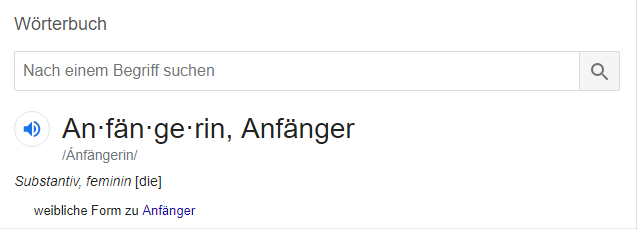I'm looking for language courses and see a lot of results like "<whatever language> für AnfängerInnen". I remember -in postfix means that the word is female version of the noun. And wiktionary says the same - that it is plural for Anfängerin, which is female for Anfänger.
Google translate also says(but I never trust it)))
However I clearly see capital I letter in the word. But didn't find any information about it.
The question is, what does it mean - is it a separate ,say, polite form? Or these courses are really for female beginners only?

